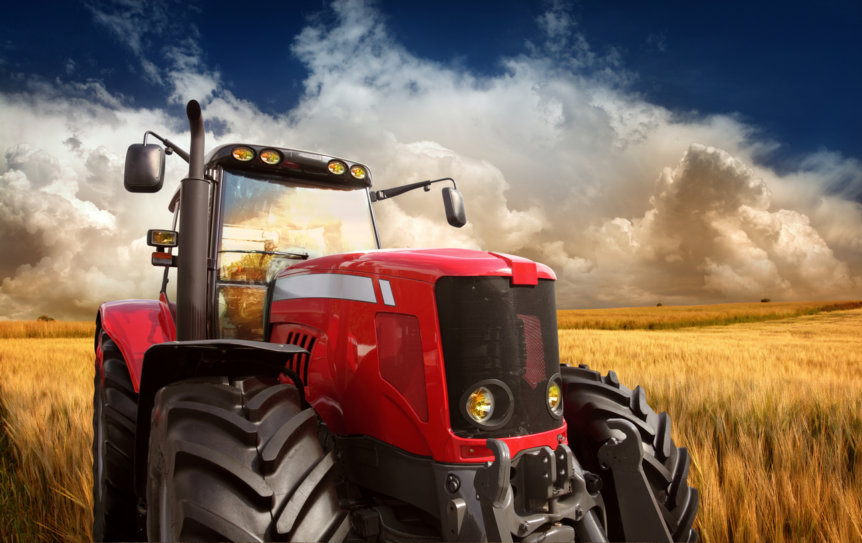What is a Farm Equipment Lease Agreement?
A farm equipment lease is a long-term rental agreement between the owner of farm equipment (the lessor) and an individual or company that wishes to use the farm equipment (the lessee) in exchange for cash rent. Farm equipment leases are far from simple agreements. A properly drafted agreement will navigate the following five issues:
- What farm equipment is included in the lease?
When it comes to lease agreements, it is always best to describe the terms in as much detail as possible so that future disputes can be avoided. This is true when it comes to describing the farm equipment at issue. A lease should describe the type, make, model, size, condition, and estimated value of each piece of farm equipment. If the lease involves a large number of varied equipment, it may be best to attach an exhibit or addendum that lists the relevant information for each item rather than describing them all in the body of the agreement.
- How should rent be calculated for a farm equipment lease?
Farm equipment lease agreements are unique because they do not always calculate rent based on a temporal basis (e.g., monthly or annual rent). Sometimes, given the amount of equipment depreciation potentially at issue, it may make more sense for a farm equipment lease to charge the lessee on a “per use” model. “Per use” rent means that the lessee pays the lessor an agreed-upon rate based on some unit of measurement of use, such as hourly use or per acre use of the equipment. A farm equipment lease that includes many types of equipment with varying estimated total values may charge different rates for different equipment. A “per use” rent model usually requires that rent will be due at the end of a lease term, whereas a temporal rent model often charges rent before use.
If the parties to the farm equipment lease agreement chose a temporal rent model rather than a “per use” rent model, they may still wish to include a maximum use provision in the lease. Such a provision would require the lessee to track his or her use of the equipment, and to pay an additional “per use” rent at the end of the lease term if use exceeds a pre-determined maximum amount.
- Are there any restrictions on the use of the farm equipment?
The farm equipment owner will want to ensure that the lessee agrees to use the equipment in a way that avoids equipment damage, excessive depreciation, or personal injury. Accordingly, the lease agreement should include terms that restrict unwarranted use. For example, the lease may specify that the farm equipment may be used for agricultural and related purposes only. It may also limit the use to certain geographic locations and certain permitted users (such as the lessee and his or her trained agents and employees). The lease may also require that the lessee follow certain specified safe operating procedures, as well as any applicable state and federal laws, manufacturer warranties, and insurance restrictions.
- Who is responsible for repairing damages to the equipment?
A farm lease agreement should clearly delineate which party is responsible for routine or unusual repairs or replacement of the farm equipment. While the parties can agree on any division of labor they like, one default assumption is that the lessee is responsible for the proper care and ordinary maintenance of the farm machinery. This may include routine damage checks, fluid checks and refills, routine cleaning, and safe storage. On the other hand, the lessor may be responsible for the costs of all major repairs to the farm equipment, such as the replacement of tires and other major parts, or any other overhauls in excess of normal maintenance. The lease agreement should address which party is responsible for the replacement of any equipment that is no longer functional due to circumstances outside of the lessee’s control, such as fire, flood, or machinery or electrical failure. If it is the lessor’s responsibility to replace such equipment, and he or she does not do so in a timely manner, the lease may include a potential adjustment in rent until such replacement is made.
- Who is responsible for insuring the equipment and damages resulting from its use?
Farm equipment is expensive and dangerous machinery that is often insured. A lease agreement should clearly define which party is responsible for insuring such equipment. Usually the lessor will fully insure the equipment against casualty, theft or other loss, damage from natural causes, or against personal liability. Meanwhile, the lessee may be required to provide proof of a general liability insurance policy adequate to compensate for any loss caused while operating the farm equipment.
Whether you are the lessor or the lessee, it is important to understand that lease agreements are binding contracts with significant consequences. If you are seeking assistance with drafting a farm equipment lease that meets your needs and protects your rights, contact Rincker Law, PLLC and schedule a consultation.

